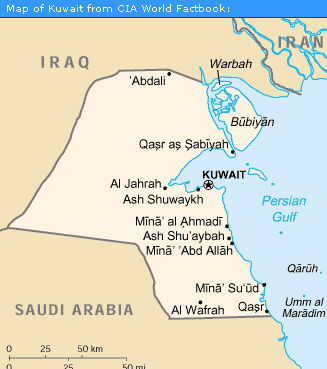Kuwait is best known around the world as the country Iraq invaded in July 1990, an act that led to the first Gulf War. Kuwait is a monarchy, and Sheikh Jabir al-Ahmad al-Jabir Al Sabah has ruled the country since 1977. Seats in the National Assembly are determined by direct vote. In May 2005, after years of wrangling, the Assembly gave women the right to vote and run for political office in Kuwait — provided that they abide by Islamic sharia law. (Conservative Islamists, who had long opposed Kuwaiti female suffrage, inserted that addendum.) A month later, Maasuma al-Mubarak became Kuwait’s first female minister (planning and administrative development) after being nominated by Prime Minister Sabah al-Ahmad al-Jabir Al Sabah. For years, women have attained high-level positions in academia, business, and even lower levels of government; for these reasons, the lack of female suffrage was seen as particularly anachronistic. Like some of its Gulf neighbors, Kuwait exhibits the curious combination of rapid reform tacitly approved by an aging, but unchallenged, monarch. Future developments are bound to be interesting.
July 19th, 2005
Future for Lebanon
Map: Middle East Governments: Kuwait
- Introduction
- Afghanistan
- Bahrain
- Egypt
- Iran
- Iraq
- Israel
- Jordan
- Kuwait
- Lebanon
- Oman
- Pakistan
- Palestinian Territory
- Qatar
- Saudi Arabia
- Syria
- Turkey
- United Arab Emirates
- Yemen


